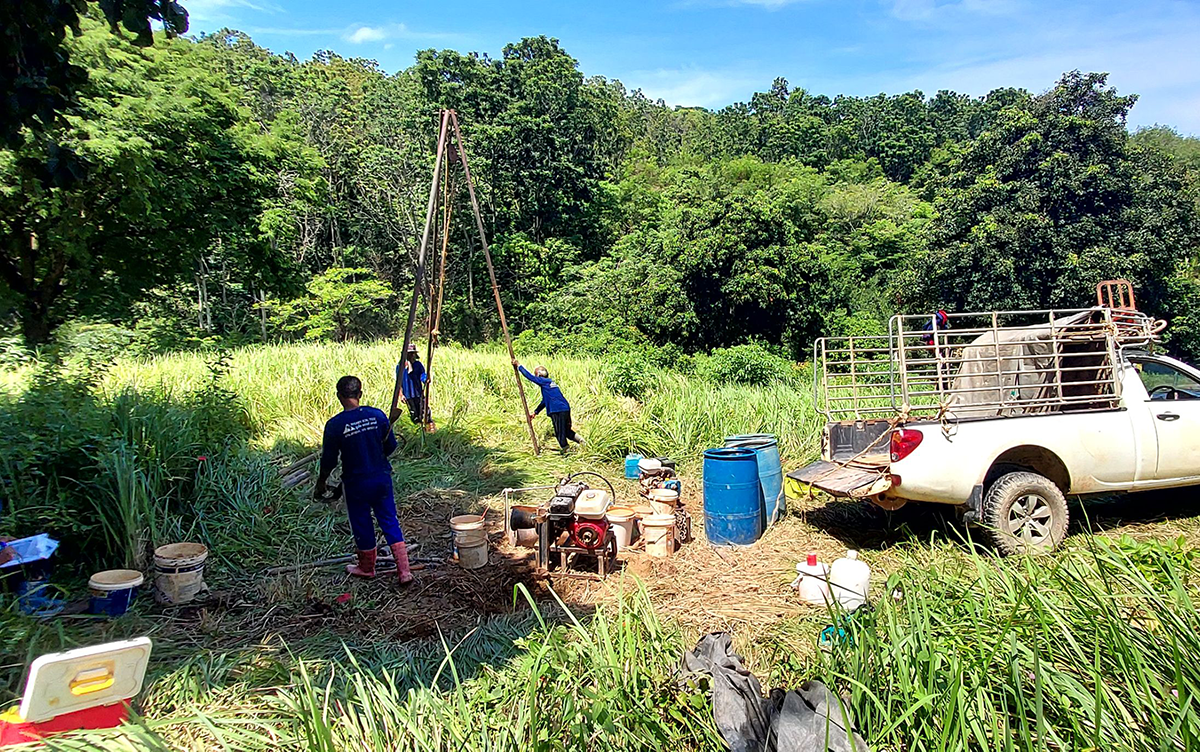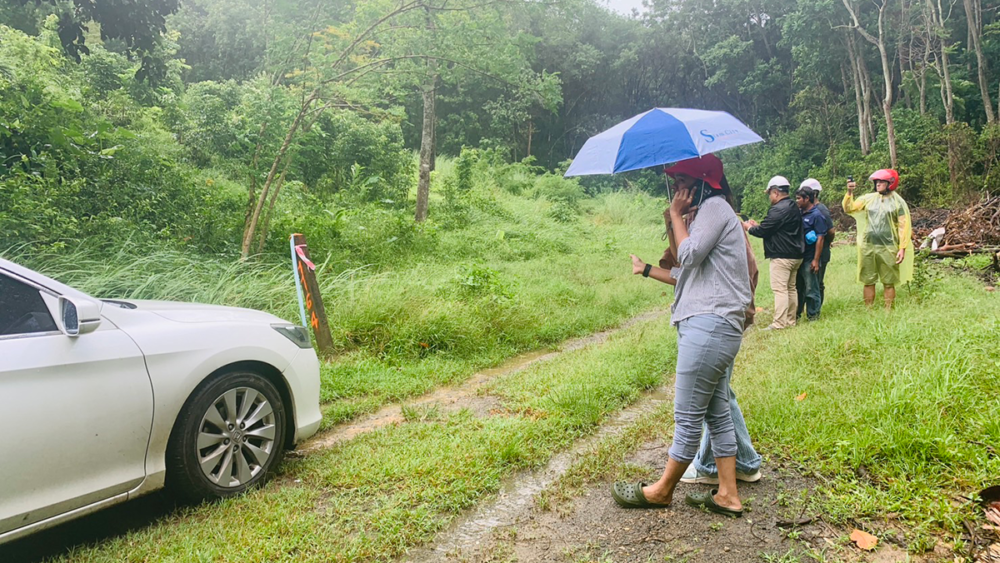NUR construction are conducting soil tests for a 2 building condominium in Rawai Phuket during October. Heavy rainfall has delayed operations marginally but we have now taken samples. 6 samples were taken from 3 meter bore holes on Saturday 7th Oct. The samples have now been sent to the laboratory for testing. The soil will be graded which will determine factors in the structural design requirements, foundation depth and design. This will also identify location of the water table so wells can be constructed.

soil testing phuket condo bore hole 1
Laboratory Soil Testing
The Lab will identify a breakdown of all of the compounds in the soil. The soil and bedrock hardness and consistency can be determined at different levels to flag any potential construction problems.
Pollutants
Another range of tests are carried out to detect environmental pollutants. If contaminated soil is found mitigating task can be undertaken.
Example Causes of Localised Contaminated Soil
Mining can release sulphuric acid, arsenic and mercury into the soil. Human and agricultural can contaminate soil if leaks, spills and pipeline ruptures occur.
Soil Type
If the soil is too loose, easily compressed, oversaturated or contains high amounts of absorptive clay then special structural engineering maybe needed. This does not mean that the land cannot be built upon, but it does mean that extra foundation supports or deeper foundations could be necessary.
Reports
Soil engineers may test the soil before, during and after construction in order to ensure full compatibility throughout the process. Results are provided by the laboratory. After identifying the soil composition, NUR has the experience to design structure for soil grading, increased drainage, bolstering foundations and creating earth supports and or retaining walls.
Image Credits: NUR Construction Co., Ltd.





Comments are closed.